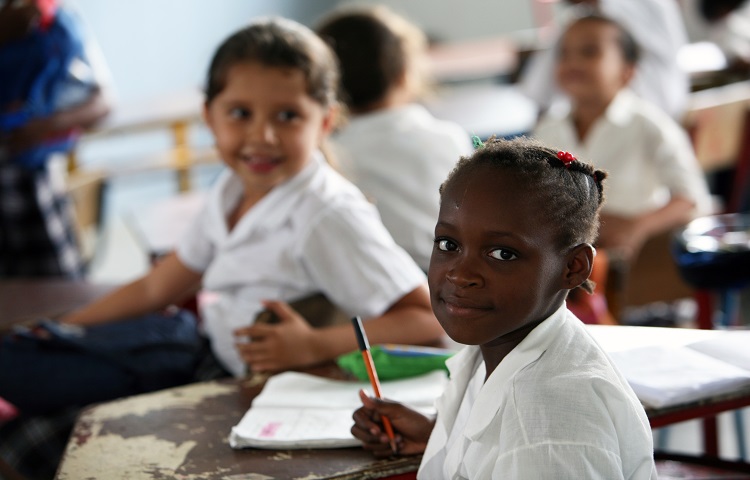Accelerate learning for education's promises of prosperity and elimination of poverty
Worldwide, hundreds of millions of children reach young adulthood without even the most basic life skills.

Schooling is not the same as learning. In Kenya, Tanzania, and Uganda, when grade 3 students were asked recently to read a sentence such as “The name of the dog is Puppy,” three-quarters did not understand what it said. In rural India, just under three-quarters of students in grade 3 could not solve a two-digit subtraction such as 46 – 17, and by grade 5 half could still not do so. Although the skills of Brazilian 15-year-olds have improved, at their current rate of improvement they won’t reach the rich country average score in math for 75 years. In reading, it will take more than 260 years.
Within countries, learning outcomes are almost always much worse for the disadvantaged. In Uruguay, poor children in grade 6 are assessed as “not competent” in math at five times the rate of wealthy children. Moreover, such data are for children and youth lucky enough to be in school. Some 260 million aren’t even enrolled in primary or secondary school.
Worldwide, hundreds of millions of children reach young adulthood without even the most basic life skills. Even if they attend school, many leave without the skills for calculating the correct change from a transaction, reading a doctor’s instructions, or interpreting a campaign promise, let alone building a fulfilling career or educating their children.
Learning crisis is a moral crisis. When delivered well, education cures a host of societal ills. For individuals, it promotes employment, earnings, health, and poverty reduction. For societies, it spurs innovation, strengthens institutions, and fosters social cohesion. But these benefits depend largely on learning. Schooling without learning is a wasted opportunity. More than that, it is a great injustice: the children whom society is failing most are the ones who most need a good education to succeed in life.
The countries can improve learning by advancing on three fronts:
Assess learning—to make it a serious goal. This means using well-designed student assessments to gauge the health of education systems (not primarily as tools for administering rewards and punishments). It also means using the resulting learning measures to spotlight hidden exclusions, make choices, and evaluate progress.
Act on evidence—to make schools work for all learners. Evidence on how people learn has exploded in recent decades, along with an increase in educational innovation. Countries can make much better use of this evidence to set priorities for their own practice and innovations.
Align actors—to make the whole system work for learning. Countries must recognize that all the classroom innovation in the world is unlikely to have much impact if, because of technical and political barriers, the system as a whole does not support learning. By taking into account these real-world barriers and mobilizing everyone who has a stake in learning, countries can support innovative educators on the front lines.
When improving learning becomes a priority, great progress is possible. In the early 1950s, the Republic of Korea was a war-torn society held back by very low literacy levels. By 1995 it had achieved universal enrolment in high-quality education through secondary school. Today, its young people perform at the highest levels of international learning assessments. Vietnam surprised the world when the 2012 results of the Programme for International Student Assessment (PISA) showed that its 15-year-olds were performing at the same level as those in Germany— even though Vietnam was a lower-middle-income country.
Between 2009 and 2015, Peru achieved some of the fastest growth in overall learning outcomes—an improvement attributable to concerted policy action. In Liberia, Papua New Guinea, and Tonga, early grade reading improved substantially within a very short time thanks to focused efforts based on evidence. And recently, Malaysia and Tanzania launched promising society-wide collaborative approaches to systematically improving learning.
Countries have already made a tremendous start by getting so many children and youth into school. Now it’s time to realize education’s promise by accelerating learning. A real education is one that encourages learning as a tool for promoting both shared prosperity and poverty elimination. That type of education will benefit many: children and families whose positive schooling experience restores their faith in government and society rather than eroding it; youth who have skills employers are seeking; teachers who can respond to their professional calling rather than to political demands; adult workers who have learned how to learn, preparing them for unforeseeable economic and social changes; and citizens who have the values and reasoning abilities to contribute to civic life and social cohesion.
ALSO READ
Uganda top court declines to block Anti-Homosexuality law but sees rights infringed
Government must pay compensation to war claimants in Uganda
UPDATE 2-Ugandan court upholds anti-LGBTQ law but says some rights infringed
Ugandan court upholds anti-LGBTQ law but says some rights infringed
World News in Brief: Rights chief dismay over Uganda anti-LGBT law, Haiti update, aid for Sudan, executions alert in Egypt










